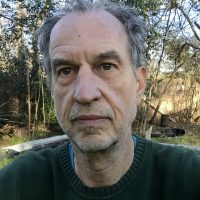That should be apparent by now, here we are in the second year of Covid 19 and it’s still going strong.
Are we really the dominant species on planet Earth? This tiny virus, about one one-millionth of an inch long, has managed to disrupt human civilization as we know it and kill 2.25 million people (so far). Let’s review.
The first life to appear on our planet was microbial, of course. You have to start somewhere. For the next 3 billion years, microbes ruled, they were the sole inhabitants of planet Earth and the singular organism of the biosphere. There were trillions of them floating around, millions of different species evolving in the vast primordial oceans.
Different species allow for different behaviours: different ways of adapting, different ways of learning, different ways of getting around (locomotion) and different ways of getting along (socialization).
Some of the organelles (miniature organs) inside our own human cells are the descendants of ancient bacteria. Millions of years ago they joined up with the ancestral precursors of our cells, in a process called endosymbiosis and have been inside our cells ever since in a friendly relationship. That means we’re part bacteria.
They’re called ‘symbionts’ – those bacteria that joined with our cells and became organelles. They have their own DNA and replicate using binary fission (basically splitting in half), every time our own cells replicate.
In our gut we have trillions of microbes. They help us digest food and in turn help themselves to the food. There are hundreds of different species, and not just bacteria – archaea, bacteria, fungi and protists are all represented. It’s not a tribe, it’s a collection of nations. They also act as first responders for our immune system. They can detect pathogens and then talk to our immune cells. They can also talk to our brain by influencing the production of seratonin, a neurotransmitter which modulates the conversation between gut and brain. This paragraph really deserves a whole book, it went by too fast. What are the microbes saying to our brain in their simple archaic primordial language?
Viruses (wherever they came from) evolve rapidly. Now there are variants of the original Covid 19 virus showing up all over the place, and there will be more. One little mistake in the gene expression while it’s replicating and a whole new organism arises.
But viruses are also beneficial; they are responsible for horizontal gene transfer. Instead of passing on genes vertically – thru offspring and the offspring of the offspring, viruses can transfer DNA by picking up a bit from one organism and dropping it off with another. That allows evolutionary changes to happen more rapidly, which is a good thing. We might still be monkeys if not for viruses.
It’s a microbial world. On average there’s 200 million bacteria in a teaspoon of soil, a million bacteria in a water droplet. The number of microbes exceed the number of humans by a factor of many zillions. They have been here longer than us by a factor of atleast one zillion.
Their large number and their easy access to each other resulted in the invention of communications technology. How to talk to the neighbors and elicit an optimal response was of primary importance to those first microbes.
They invented messenger molecules and messenger molecule receptors so they could talk in the language of chemicals. No words necessary, just tiny molecules put together in such a way as to cause a response in their fellow organism.
Today we have way better ways of communicating. Information is digitized (by the digitizer) and then sent thru multiple transmission modes at once. You may see it on your phone or you may see it on your watch. Digitized information is malleable. You can talk, speak, or listen. For long lasting impressions, you can record it on video recorder.
The early cells had only chemicals to talk with. A limited vocabulary, for sure, compared to our nuanced modern languages. But what were they saying in their simple chemical language? Whatever it was they were saying, they had everything they needed to say it.
“Life did not take over the globe by combat, but by networking.” is the famous quote from Lynn Margulis, the scientist who first demonstrated how the process of endosymbiosis works.
If mankind wipes itself out on this planet Earth (along with lots of other species probably), the microbes will start it back up again.
If we get it together, and live sustainably on this planet Earth, then we can make friends with the microbes, those who have been trying to make this place livable since a really long time ago. Maybe we can also learn some microbe-ese.
I don’t know how to do it yet. Something very simple, I imagine, without any fear, nothing to hide.






Read 0 comments and reply